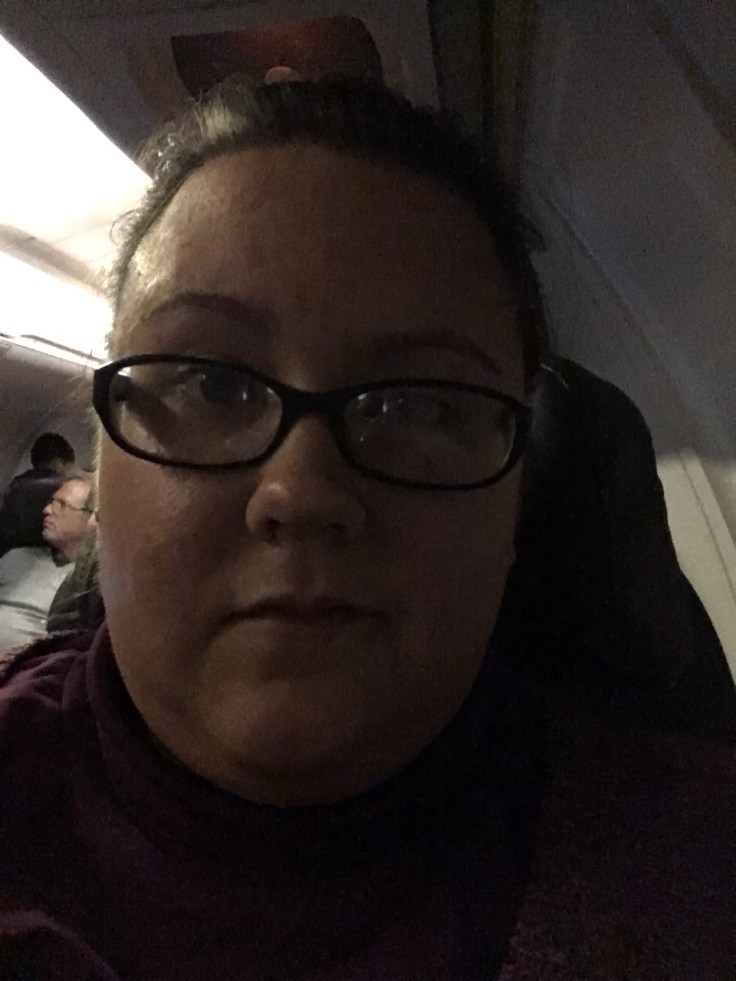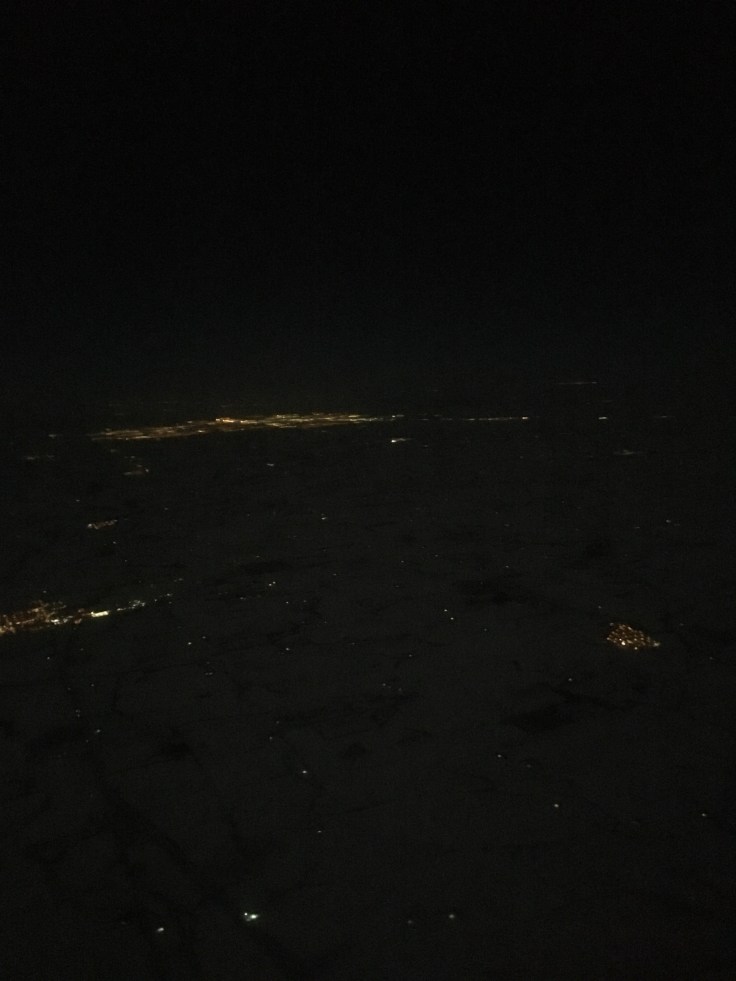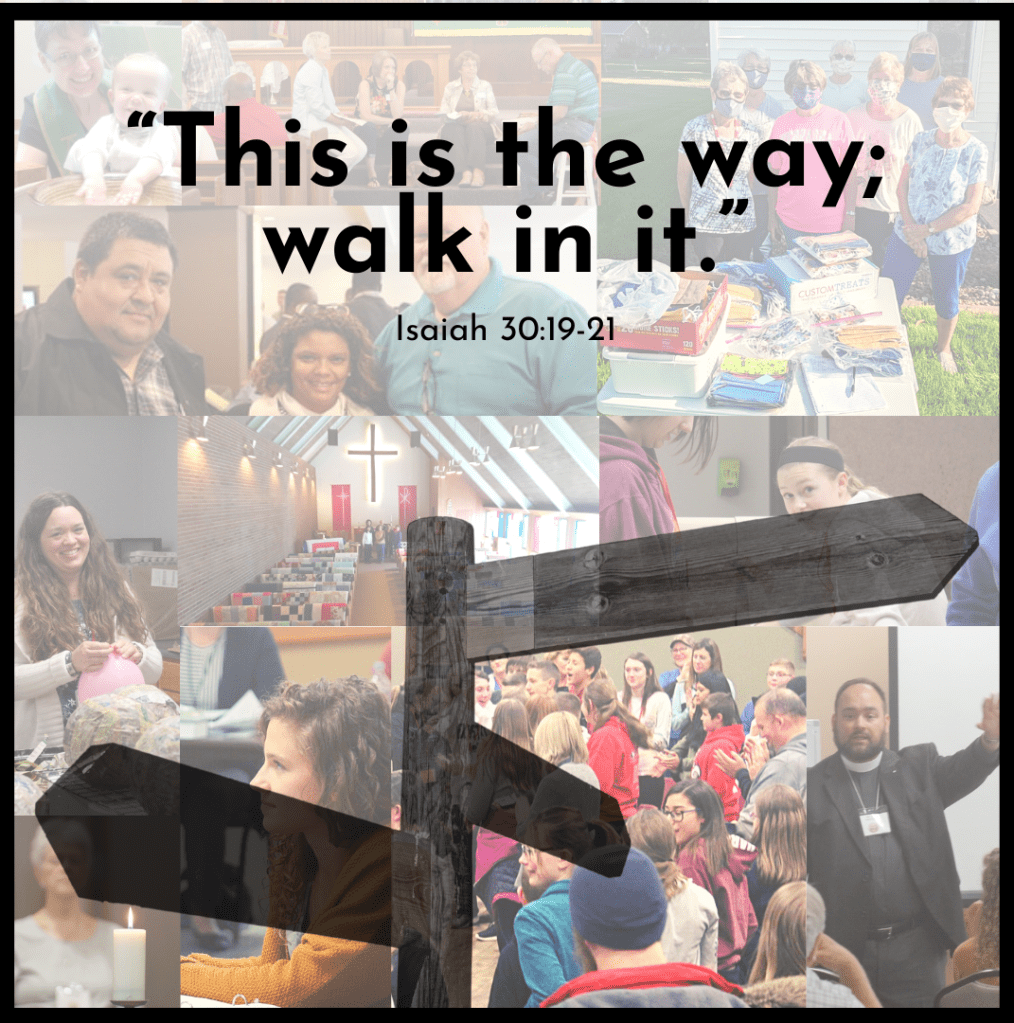Sunday, October 24, 2021
St. John’s Lutheran Church, Schuyler, NE
Twenty-Second Sunday after Pentecost
watch this service online (readings start around 17:01; sermon starts around 22:15)
I have almost never missed a Christmas at home with my family. And, considering all the different places I have lived, that has often taken some doing.
When I lived in the Dominican Republic, it took me almost 24 hours to get home. The DR isn’t that far away from the US, but it took me two bus rides and a taxi just to get to the airport. From there to Omaha, it usually took at least three flights, and then over a two hour drive to actually get home. So, as you can imagine, I got to spend lots of long layovers getting to know airports in Miami and Atlanta and Dallas and Chicago and so on. But I always found fun things to do. I’d walk up and down the concourses and eat snacks; I’d chat up friendly-looking people to find out why they were going where they were going; I’d look through the gift shops and thumb through the books. To this day, I still have a collection of scarves I bought in airport gift shops because after four years of living in the tropics, I got cold very easily – even in Miami!
But I never missed a single Christmas in the four years I lived in the Dominican Republic, even though it took me a whole day to get home.
The one year I didn’t make it home for Christmas was actually the year I was on internship in New Mexico. I had to work on Christmas Eve and it was just too far away to make it home afterward. Instead, I flew home about a week after Christmas, on December 31st, New Year’s Eve. I preached that morning at a church in El Paso and went straight from the church to the airport. I made it as far as Dallas – and then a massive ice storm hit. My two hour layover stretched from two hours into four, then six hours, then eight hours.
By the time the plane finally took off, it was so late that I actually left Dallas in 2017 and landed in Omaha in 2018. I think we rang in the new year somewhere over Kansas (maybe?). I wasn’t sure where we were or even what time zone we were in. But it didn’t matter. We busted out the bubbly – by which I mean ginger ale – and I got to toast the new year with a bunch of strangers on a plane. And I even noticed when I looked out the window that I could actually see the bright, tiny flashes of fireworks that people were setting off way down below us. That was really cool! I’d never gotten to see fireworks from above before.
It’s odd to consider how much of my cherished holiday and vacation time I have spent in these weird, in-between places that are neither here nor there – in planes or on buses or in an airport. Yet this is increasingly the reality for many of us in the 21st century whose families are growing and moving apart. And that weird, in-between-ness, that waiting time in between leaving and arriving, actually has a name: it’s called “liminal space.” Some of you have probably heard this term before. “Liminal” comes from the Latin word “limen” which means threshold. You can actually imagine liminal space as being like a doorway; when you walk from one room into another, there’s a moment when you’re in neither room and both at the same time. That’s liminal space – and our lives are full of it. Airports, hotel rooms, waiting rooms are all liminal spaces. Pregnancy is liminal space, and so is hospice. Any kind of period of transition in our lives is liminal: training for a new job, getting engaged, moving to a new place – heh, adolescence leaves us in liminal space for years.
Understanding the nature of liminal space – that space of waiting and in-between-ness, when what was before has passed, but what will be has not yet come – this is really important for us to be able to understand a lot of the stories in scripture. Our ancestors in the faith spent a lot of time wandering in that space of already-and-not-yet – that space in between promise and fulfilment – and you can hear it come through in our readings for today.
I love these lines from Psalm 126:
When the Lord restored the fortunes of Zion, then were we like those who dream.
Psalm 126:1-3
Then was our mouth filled with laughter, and our tongue with shouts of joy. Then they said among the nations, “The Lord has done great things for them.”
The Lord has done great things for us, and we are glad indeed.
It starts off sounding like this beautiful psalm of thanksgiving– but then the psalmist continues and we hear him say, “Restore our fortunes, O Lord, like the watercourses of the Negeb.” Restore our fortunes. The tone of the psalm changes and we realize that this psalmist isn’t rejoicing in a time of good fortune. He is remembering back to how good and faithful God has been to his people in the past, and he is praying for God to help them again. But the psalmist himself is somewhere in the middle, rooting his hope for the future in the memory of what came before, while he deals with what is in the present.
This is even more clear in Jeremiah. Jeremiah was a prophet writing during the time of Israel’s downfall and defeat at the hands of the Babylonians. He watched helplessly as his people were conquered and sent into exile. Yet he and his people kept the faith that God would be faithful to the promises God had made. And, indeed, God speaks through Jeremiah throughout this whole chapter. Jeremiah writes:
Thus says the Lord:
Jeremiah 31:2-3
The people who survived the sword
found grace in the wilderness;
when Israel sought for rest,
the Lord appeared to [them] from far away.
[God said] I have loved you with an everlasting love;
therefore I have continued my faithfulness to you.
God declares that God has been and will be faithful to God’s people – even in the midst of this liminal time of exile. And through Jeremiah, God also promises that this time of waiting will end:
Again I will build you, and you shall be built, O Israel!
Jeremiah 31:4-5, 8-10
Again you shall take your tambourines,
and go forth in the dance of the merrymakers.
Again you shall plant vineyards…
the planters shall plant,
and shall enjoy the fruit…
See, I am going to bring them from the land of the north,
and gather them from the farthest parts of the earth,
among them the blind and the lame,
those with child and those in labor, together;
a great company, they shall return here.
With weeping they shall come,
and with consolations I will lead them back,
I will let them walk by brooks of water,
in a straight path in which they shall not stumble…
Hear the word of the Lord, O nations,
and declare it in the coastlands far away;
say, “The one who scattered Israel will gather them,
and will keep them as a shepherd keeps a flock.”
These words of hope that we read in scripture become so much more powerful when you realize that so many of them were written by and for people like us: people who are waiting for these hopes to be fulfilled – people living in times of already-and-not-yet – people living in liminal space. Like those that came before us, we remind ourselves of how good and faithful God has been to us in the past, and that gives us hope to expect that God will continue to be good and faithful to us in the future.
This concept of “liminal space” is something that has been on my mind a lot. It was one of the major themes of our Re:Formation conference last week. One of our keynote speakers was Bishop Michael Rinehart from the Texas-Louisiana Gulf Coast Synod, and he named the moment that we’re living in right now as liminal space. The worst of this pandemic seems to be behind us, but it’s still not over. We are now living in a kind of “pre-post-pandemic” period, as Bishop Brian has taken to calling it. We know that this crisis has changed our lives and the world at large – but it’s not clear yet what these changes will mean for us as we move forward.
Bishop Rinehart spent a lot of time talking about just owning and acknowledging that this is where we are. We are stuck in a long layover and our flight keeps getting delayed. And there’s nothing we can do to change that. Liminal space is usually not something you can force your way out of. Like the Israelites wandering in the wilderness, we can’t go back to the way things were (God knows why they would have wanted to!) – and we also can’t force our way forward into the promised land ahead of God’s schedule.
Instead, this time right now is a time for us to rest. Now is the time to turn our weary, hungering souls toward God and allow ourselves to be replenished. We’ve exhausted our reserves of energy just to keep going over the last 19 months. Now is the time to grab a snack and stretch out across the waiting room chairs to catch a nap.
Now is a time to listen. Now is the time to quiet our anxious minds and hearts and open ourselves to hear the words of love that God is speaking to each and every one of us. Now is the time to notice the little gifts of this liminal moment – the long walks and the fireworks and the ginger ale shared with strangers; the opportunities opening up that may not have been there otherwise.
And now is a time to remember. Now is the time to reread the stories of our ancestors in the faith and remind ourselves of God’s unfailing faithfulness to God’s people. Now is the time to remember the many ways that God has been faithful to each of us over the course of our lives. Now is the time to root our hope for the future not in what we think might be possible, but in what God makes possible.
Our story won’t end here in this place of waiting; nobody stays in the waiting room forever (if they did, it’d be a living room, not a waiting room!). If we take the time to rest and listen and remember, we will find that God is already here with us, caring for us, and preparing us for whatever it is that comes next. And when the time comes, we can trust God to still be here with us, leading us across the threshold and into the light of a new day.





This sermon made my day. Of course, this is luminal time, but I hadn’t thought of it until I read your sermon. I do believe that God is birthing a new day, and the birth pangs are not always pleasant. Thank you!
Awww! This comment made my day! I owe many thanks to Bishop Rinehart and the folks who put together the conference for helping us orient ourselves to the time and the season — and yes, for sure, creation groans with the labor pains of a new creation, but something new is coming!